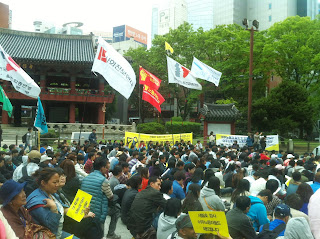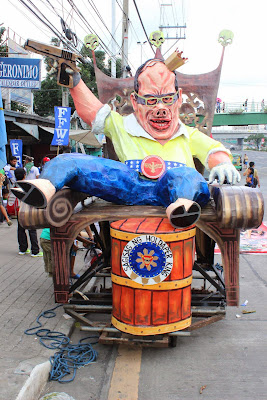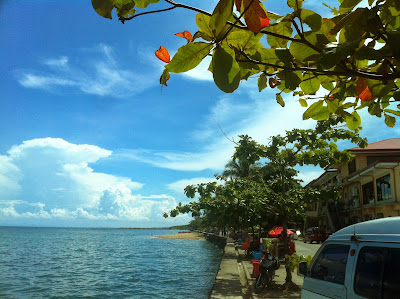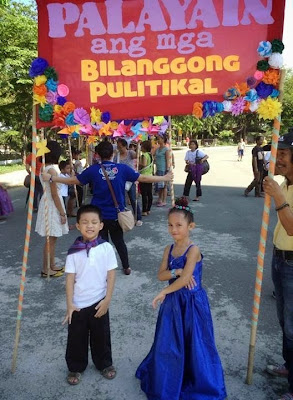A world without forced migration
Why migrants should support the call for development justice
International Migrants Alliance (IMA)
Campaign for People’s Goals for Sustainable Development
Currently, there are 232 million international migrants in the world and this is projected to increase in the coming years. This includes migrant workers and immigrants who are mainly in agriculture, industries and the service sector. This number does not yet include the millions more irregular (or undocumented) migrants, as well as refugees.
Present-day migration is a result of inequities existing in the world perpetuated by policies of neoliberal globalization.
Migration pattern is mainly characterized by migration from less developed countries to the more developed ones such as the migration of people from Latin American and the Caribbean to North America, from Southeast Asia to the richer countries of East Asia, from South Asia to the Middle East, or Eastern Europe to Russia and to Western Europe.
The past four decades of implementing neoliberal globalization policies has deepened the maldevelopment of third world countries. The destruction of agriculture, deindustrialization, and contraction of public social services in the country of origin of migrants has led to mass displacement, dislocation and forced migration.
It has also heightened the need for a more “flexible” skilled, cheap, disempowered labour force that are sourced from the less developed countries always on the lookout for labour markets to absorb its ever expanding labour force that its regressive economy cannot absorb.
Within countries of origin, neoliberal economics only benefit the ruling elites that include the big traders of imported goods, exporters of raw materials and agricultural produce, local partners of giant multinational mining corporations, and the local land-owning classes. Through the labour export program used to prop up the constantly flagging economy and diffuse the social volcano created by an impoverished majority, the local elites not only maintain the status quo but even profit further from the labour export-related businesses recruitment agencies, financing agencies, medical facilities, and even real estates.
In receiving countries, migrants and immigrants are used as bargaining chips for capitalists to depress the wage of all workers, erode labour rights and even destroy unions. Migration ensures profits while the local working class and their families struggle for survival.
Current migration also demonstrates the inequities existing between men and women. For the past decades, female migration has shoot up and even surpassed male migration in some areas. This so-called “feminization” of migration is not an indication of uplifting the economic participation of women but is an indication of the worsening condition of women in sending countries. It also shows the contraction of overseas labour market that is now focused more on jobs perceived to be for women domestic work, care industry, and jobs in the service sector.
With a nominal recognition that neoliberal globalization has not brought development for the people, the United Nations, in 2000, formulated the Millennium Development Goals that consisted of concrete targets on major development themes.
Now, with just over a year before the target completion of the MDGs on 2015 comes, confidence on the delivery of the MDGs in the context of worsening and protracted economic, food, financial and climate crisis is not high.
When the MDGs were formulated, migration was not discussed as a context or as a theme to be addressed. In fact, even the 2013 Report on the MDGs did not mention the condition of migrants, immigrants and families as a measure of how the development goals are faring.
While the UN remains optimistic of the MDGs, the fact remains that since the MDG was formulated, international migration increased from 175 million to 232 million. In 1990 when conferences that served as bases of the MDG started, there were 154 million international migrants.
If development is indeed getting propelled, why is migration that even UN member states recognize as a forced one still very much on the rise?
Ironically, instead of treating migration as a development problem, it is now being considered as a development opportunity. The World Bank, various UN agencies and other multilateral and multi-stakeholder bodies such as the Global Forum on Migration and Development, all choose to emphasize the enormous contribution of migration for development. They are advancing the flawed strategy of using remittance as a motor for development: be it as part of the GDP, as a credit-rating booster, or as a means to increase social capital through economic capacity given to households of migrants.
Remittance that is even greater than official development aid and second only to foreign direct investments is targeted as a source of “new and additional” financing for sustainable development.
It is disturbing that current discussions on the Post-MDG agenda are geared towards developing and further systematizing migration and labour export programs. Migrant-sending countries are markedly pushing for an increase in migration flows and the lowering of restrictions in destination countries. Host countries, meanwhile, are pushing to attract skilled workers and professionals an agenda they’ve had since the GATS Mode 4 was introduced and is now being continued in the TISA negotiations and are perfecting their temporary workers/ guest workers programs.
The myth of migration for development is set to be perpetuated and further reinforced by its integration into the so-called Post-2015 development agenda.
The UN Global Migration Group (GMG) writes,
“The post-2015 UN Development Agenda provides a unique opportunity to remedy this omission [of migration in the MDGs]. Now that migration has become a global phenomenon affecting almost all countries in the world, and in view of its crucial links with development, the GMG believes that migration must become an integral part of the post-2015 UN Development Agenda, including through its integration in goals and targets, monitored by specific and appropriate indicators.”
Based on the ongoing deliberations in the inter-governmental Open Working Group (OWG) tasked to come up with a new set of global sustainable development goals (SDGs), there are three ways in which migration is being incorporated in the Post-2015 development agenda.
First is encouraging more migration. Pakistan, for instance has proposed increasing global migration flows by 10% by 2030, particularly of skilled labour from lower income to higher income countries supposedly to reduce inequality between countries. The Group of Least Developed Countries (LDCs) likewise calls to remove restrictions on labor migration and deepen short-term, circular migration, particularly for migrant workers from LDCs.
Second, there are numerous proposals to increase remittance flows including reduction of transactions costs associated with these flows.
Third, there are a number of proposed targets meant to protect the rights of migrants, provide social protection, end discrimination and violence against migrants and refugees among other vulnerable groups. These also include proposals to end illegal trafficking.
It is becoming apparent that integrating migration into the Post-2015 development agenda is not about ensuring the end of forced migration and the conditions that perpetuate the super-exploitation of migrants. It is about facilitating, systematizing and legitimizing labor export that adheres to the neoliberal globalization prescriptions of labour flexibilization, justifying government cutbacks on social spending, and ostensibly protecting the rights of migrant and refugees without addressing the repressive measures in place in receiving countries.
While the UN GMG and their civil society partners, at best, profess to address the particular needs and problems of migrants as a growing demographic segment of the population that is vulnerable and marginalized, they also serve to instrumentalize migration for global capitalist accumulation.
Neoliberal globalization as a framework has only worsened the condition that forces people to migrate for survival and transgresses on the dignity of migrants. Radical shifts are needed if the Post-2015 development agenda are to induce a just, equitable and sustainable development for the people.
Development justice is the transformative development framework that aims to address the inequities between countries, between the rich and poor within countries, and between men and women that maintain the current nature of migration and the exploitation of migrants.
Through the following foundational shifts composing development justice, the condition for a development that shall address forced migration can be created:
1. Redistributive Justice will ensure that in countries of origin, resources and opportunities can be accessed by the people, and they will not be forced to seek them overseas
2. Economic Justice will ensure decent living including decent living for immigrants and their families in countries of destination
3. Social Justice eliminates all forms of discrimination and marginalization including the economic, political and social exclusion of migrants and immigrants in the host countries
4. Environmental Justice presses countries and elites historically responsible for climate degradation to own up to their greater responsibility to stop environmentally damaging production and consumption
5. Accountability to the People that will ensure that migrants are part of free, prior, and informed decision making in all stages of development processes.
Migrants should be present in the development discussions. We were left behind when development goals were set. We were still left behind when actions to achieve the set goals were implemented.
We shall make sure that in the post-2015 development agenda, migrants as stakeholders are involved and migration as a problem of maldevelopment is addressed.++













